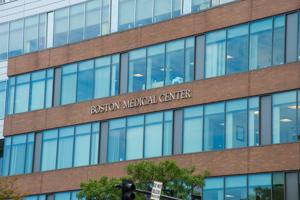The Pediatric Gastroenterology Clinic at Boston Medical Center provides comprehensive care to patients from infancy to age 22 suffering from disorders related to the gastrointestinal system. Our dynamic team of physicians, nurses, nutritionists and psychologists work closely with one another to provide a competent, highly personalized care to each patient. For children with complex medical conditions we are able to closely coordinate with other pediatric specialties so that you may be seen by multiple providers at one appointment.
The clinic activities are patient centered providing culturally sensitive care. Several of our providers are multi-lingual (English, Spanish, Mandarin, and Cantonese).
Our team is committed to provide consultation, diagnosis and treatment for a wide-range of gastrointestinal conditions, including liver, pancreatic, and nutrition disorders. Some of the most commonly treated problems include:
- Bloody stool and/or vomit
- Celiac Disease
- Chronic diarrhea
- Colitis & Chron’s Disease
- Constipation
- Gallstones
- Hepatitis and other liver diseases
- Inflammatory bowel disease (IBD)
- Jaundice in the newborn
- Lactose intolerance
- Prolonged abdominal pain
- Prolonged Vomiting
- Weight loss or poor weight gain
When your child is referred to our clinic, we promise the following:
- A comprehensive evaluation, including a thorough history-taking and physical examination
- A clear explanation about the potential causes of the patient’s problem and about tests which are indicated to make a diagnosis
- Full disclosure of the risks of any procedure, and instructions for any tests that require special preparations
- A full and complete explanation of the expected goal of treatment and any potential side-effects
- As many follow-up visits as may be necessary to determine if the diagnosis is correct or if the treatment goal has been accomplished
Contact Us
7th Floor
Crosstown Center 617.414.4841
Monday, Wednesday Friday: 8:00 AM - 5:30PM Tuesday, Thursday 8:00 AM - 8:00 PM

Diagnostics and Tests
Children with gastroenterology (stomach) problems should be seen by a specialist who can diagnose and treat their problem. When a patient first comes to meet with the gastroenterologist, he or she will have a physical evaluation, and the doctor will talk to the parents and child about their medical history.
Much of the time tests are ordered to help diagnose what is wrong. Typical tests can include blood tests, analyzing urine and stool, and imaging studies such as X-rays and ultrasound. In addition, specialized tests are available.
Endoscopy
You will receive an intravenous sedative and pain medication. Once comfortable, the physician will then examine the area using an endoscope—a lighted tube with a small camera at the end. The physician will be able to view any abnormalities and take a tissue samples (biopsies) if necessary.
Esophageal Manometry
This test measures the pressure inside the lower esophageal sphincter (LES). A thin tube is inserted through your mouth or nose and into your stomach. Once it is in place, the physician will gently pull the tube back into the esophagus and ask you to swallow.
Esophageal pH/Impedance Probe Study
The esophageal pH/Impedance test is an outpatient procedure performed to measure the pH or amount of reflux that flows into the esophagus from the stomach during a 24-hour period.
Lactose Breath Hydrogen Test
The hydrogen breath test is used to identify one of two conditions: lactose intolerance or an abnormal growth of bacteria in the intestine. The patient will blow up a balloon-type bag. Then, the patient will drink a solution and breath samples will be collected every 15-20 minutes for up to 3 hours.
Nuclear medicine: gastric emptying scan, gallbladder emptying scan, esophageal motility, salivogram
Nuclear medicine tests use small amounts of radioactive material to diagnose specific disease and help determine how severe they are.
Computed Tomography (CT) Scan
CT scans use x-ray equipment and computer processing to produce 2-dimensional images of the body. The patient lies on a table and passes through a machine that looks like a large, squared-off donut.
Magnetic Resonance Imaging (MRI)
This test uses a magnetic field, radiofrequency pulses, and a computer to produce detailed images of body structures in multiple places. You may be asked to drink a contrast solution for better imaging, and you will most likely lie on a moving table as pictures are taken.
Fluoroscopy
A fluoroscopy is a moving X-ray. As the X-ray beam passes through the chest area, a moving image is displayed on a monitor so the physician can assess function.
Rectal Manometry Test
Anorectal manometry is an outpatient test that evaluates bowel function in patients with constipation or stool leakage.
Our Team
Tamara Feliciano-Alvarado, MD

Laura J Goldstein, PsyD

Carine M Lenders, MD

Claudio J Morera, MD

Margot Tang, MD

Lauren Berard, RD, LDN
Jenelle Del Toro, RN
